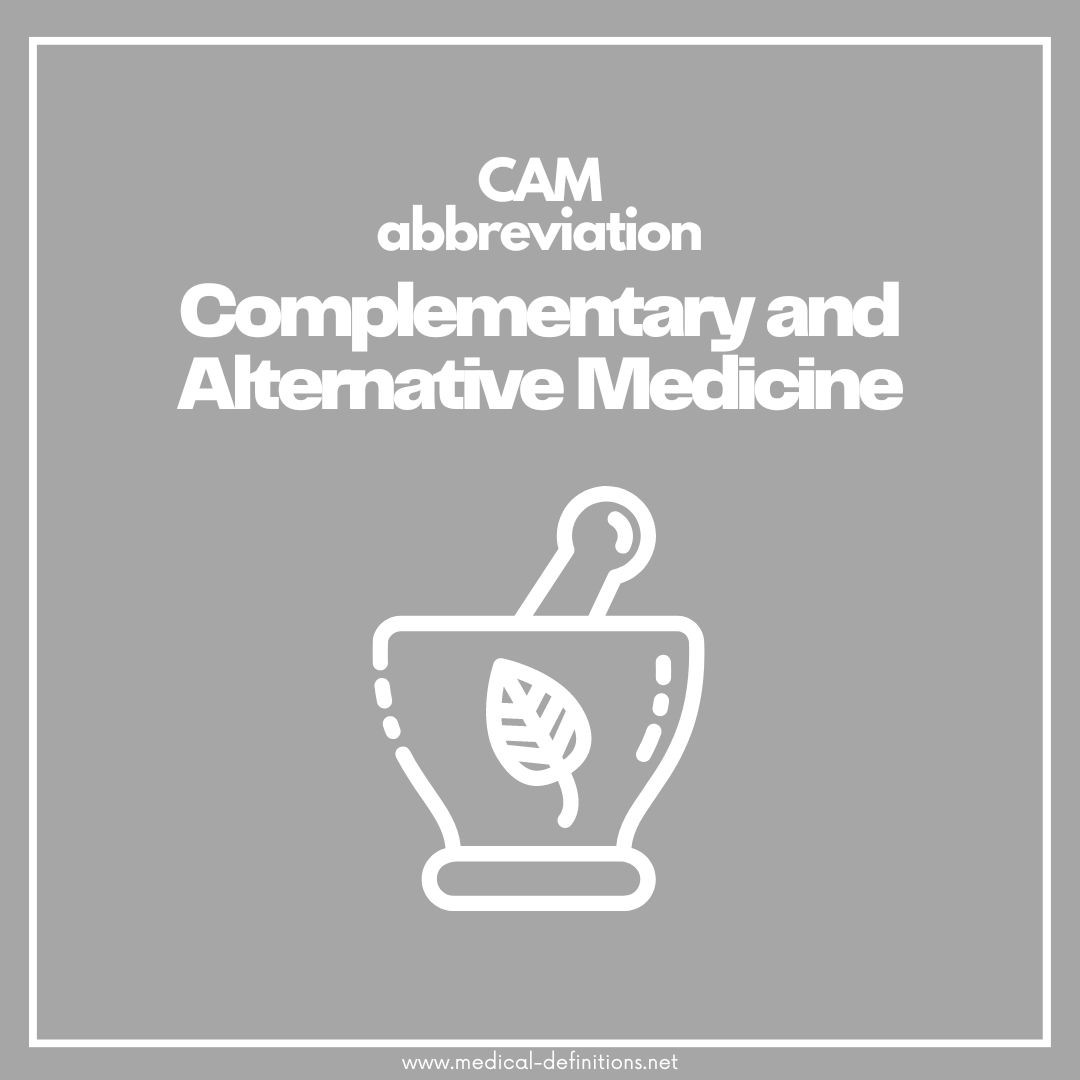
Contents
- 1 Alternative Treatment (CAM) for MS
- 1.0.1 What is multiple sclerosis (MS)?
- 1.0.2 What are the symptoms of MS?
- 1.0.3 What alternative treatments can be used for MS symptoms?
- 1.0.4 What about medical marijuana (cannabis) for MS symptoms?
- 1.0.5 Who is eligible to pursue treatment with CAM?
- 1.0.6 How much does CAM cost?
- 1.0.7 What are the potential risks and side effects of CAM?
- 1.0.8 What different types of CAM were studied in the National Health Interview Survey?
- 1.0.9 From
Alternative Treatment (CAM) for MS
CAM (complementary and alternative medicine) is care provided in addition to or instead of traditional or standard medical practices. This group of therapies includes:
- acupuncture
- herbal supplements
- dietary modifications
- magnets
- reflexology
- much more
Some people seek out alternative medicine when conventional therapy has not successfully controlled their symptoms or when the potential side effects of traditional therapy aren’t acceptable. Adding complementary medicine to a treatment program can improve symptom control. When complementary medicine is added to traditional routes, it is referred to as integrative medicine.
Recent studies suggest that as many as 38% of residents within the United States seek out CAM.
Many therapies within the group of complementary and alternative medicines haven’t been studied extensively or investigated in comparison to conventional treatment options.
What is multiple sclerosis (MS)?
Multiple sclerosis (MS) is a disease that causes demyelination of the brain and spinal cord or a loss of the covering around axons. When this occurs, the axons don’t work well. As more areas of the central nervous system are affected by the loss of myelin, different symptoms develop.
What are the symptoms of MS?
The specific symptom seen in MS is related to the area of injury in the brain or spinal cord. Examples of symptoms of MS include:
- numbness, burning, tingling feeling, weakness in certain areas of the body; the weakness might be mild or severe enough to cause paralysis of one side of the body
- bladder and bowel symptoms including incontinence, difficulty in starting to urinate, a strong and/or frequent urge to urinate, and even loss of control of the bladder or an inability to empty the bladder
- eye problems such as eye discomfort, double vision, uncontrollable eye movements, optic neuritis, and vision loss
- difficulty moving the arms or legs, difficulty walking, or problems with coordination and fine motor skills
- sexual problems in men and vaginal dryness in women
- nerve and brain problems such as dizziness, depression, memory loss, balance problems, poor judgment, and memory loss
- muscle spasticity, which is an involuntary painful contraction of some muscles
Are Your MS Drugs
Working?
What alternative treatments can be used for MS symptoms?
Fatigue and spasticity
Fatigue and spasticity seem to respond best to CAM.
Therapies that have shown some benefit for fatigue include:
- exercise, yoga, swimming, walking, and other types of regular exercise
- magnet therapy
- gingko biloba supplements
Spasticity has reportedly been reduced with acupuncture and massage therapy. Reflexology has been reported to improve tingling sensations.
Alternative treatments for other MS symptoms
Symptoms including depression, memory loss, urinary incontinence, and progression of MS itself and disability have had limited improvement when treated with CAM.
Therapies tested to improve these symptoms include:
- a low-fat diet
- bee venom
- hypnosis
- multiple different amino acids
- alpha lipoic acid
- hyperbaric oxygen therapy
None of these treatments led to significant benefit in the studied symptoms.
What about medical marijuana (cannabis) for MS symptoms?
Studies have looked at the potential benefits of medical marijuana (cannabis) on MS symptoms, including spasticity and chronic pain. There is some suggestion that FDA-approved forms of medical cannabis may be beneficial in improving spasticity or bladder frequency. However, there are no reports that ingested or inhaled medical marijuana is beneficial for conditions associated with MS. The National Multiple Sclerosis Society has more information about medical marijuana for MS symptoms.
Who is eligible to pursue treatment with CAM?
Anyone can participate in CAM therapy. However, most of these therapies aren’t covered by insurance and may be an out-of-pocket cost for patients with MS.
Patients who decide to pursue CAM need to share this information with their physicians, as some supplements may interact with conventional medication and lead to side effects.
How much does CAM cost?
CAM costs can vary widely. Regular exercise and yoga can be low or no-cost options, while other therapies like massage and acupuncture can be quite expensive.
Every patient must have a good relationship with treating healthcare professionals of traditional and non-traditional therapies to best understand potential costs.
By clicking Submit, I agree to the MedicineNet’s Terms & Conditions & Privacy Policy and understand that I may opt out of MedicineNet’s subscriptions at any time.
What are the potential risks and side effects of CAM?
Side effects of CAM vary depending on the treatment.
- Patients who have selected various supplements or dietary measures may experience hot flashes or gastric disturbances such as nausea or constipation.
It is important to discuss any potential or ongoing use of CAM with your healthcare professional, who may need to adjust your current therapies to prevent any adverse effects caused by interactions.
What different types of CAM were studied in the National Health Interview Survey?
Different types of complementary and alternative medicines that were studied in the National Health Interview Survey from 2002 through 2012 include:
- Acupuncture
- Ayurveda
- Biofeedback
- Chelation therapy
- Chiropractic care
- Energy healing therapy/Reiki
- Special diets: Vegetarian, Vegan, Macrobiotic, and others
- Folk medicine
- Guided imagery
- Homeopathic treatment
- Hypnosis
- Massage
- Meditation
- Movement therapies: Alexander technique, Feldenkrais, Pilates
- Naturopathy
- Nonvitamin and nonmineral dietary supplements
- Osteopathic manipulation
- Progressive relaxation
- Qi gong
- Tai chi
- Traditional healers: Botanica, Curandero, Espiritista, Yerbera, Medicine man, Shaman, and others
- Yoga
From
Healthy Resources
- 14 Ways MS Has Improved My Life
- B-Cell Therapy for Multiple Sclerosis
- 5 Expert Tips for Living With Relapsing MS
Featured Centers
- What Are the Best PsA Treatments for You?
- Understanding Biologics
- 10 Things People With Depression Wish You Knew
Medically reviewed by Joseph Carcione, DO; American Board of Psychiatry & Neurology
Clarke TC, Black LI, Stussman BJ, Barnes PM, Nahin, RL. Trends in the Use of Complementary Health Approaches Among Adults: United States, 2002-2012. National Health Statistics Reports. Number 79; February 10, 2015.
The National Multiple Sclerosis Society. MS Symptoms.
UpToDate. Patient information: Multiple sclerosis in adults (The Basics).
Yadav V, Bourdette D. Complementary and Alternative Medicine: Is There a Role in Multiple Sclerosis? Current Neurology and Neuroscience Reports 2006, 6:259–267.
Yadav V, Bever C, Bowen J, et al. Summary of evidence-based guidelines: Complementary and alternative medicine in multiple sclerosis. Report of the Guideline Development Subcommittee of the American Academy of Neurology. Neurology 2014;82;1083-1092.


